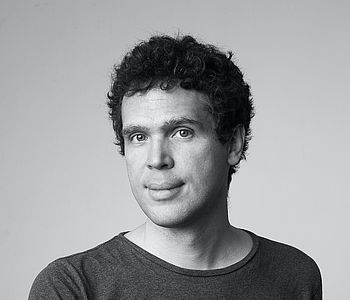Prof. Dr. Camille Roth | Forscher
Ehemaliges Mitglied
Mutterinstitut
:
CNRS & EHESS
|
Position
:
Forschungsprofessor und Professor
|
Fachbereich
:
Soziologie
,
Informatik
|
Biographie
Prof. Dr. Camille Roth hat ein interdisziplinäres Profil an der Schnittstelle zwischen Naturwissenschaften und Sozialwissenschaften. Er ist gleichzeitig Forschungsprofessor am CNRS im Fachbereich Informatik und Professor für Soziologie an der EHESS. Früher war er ebenso Professor für Soziologie an Sciences Po und Juniorprofessor für Soziologie an Universität Toulouse (2007). Er promovierte in Sozialwissenschaften an der Ecole Polytechnique (2005), mit einem Dual-Hintergrund in Mathematik und Physik (Ingenieur, Ecole des Ponts, 2002) und Kognitionswissenschaft (MSc., EHESS, 2002).
Er leitet das Centre d'Analyse et de Mathématique Sociales tätig, ein gemeinsames Labor von CNRS und EHESS in Paris. Darüber hinaus ist er assoziierter Forscher am Centre Marc Bloch, wo er nach wie vor das 2012 von ihm gegründete Team in Computational Social Science leitet. Außerdem befasst er sich mit den sozio-semantischen Netzwerken sowie mit der Dynamik des öffentlichen Raums (vor allem im Zusammenhang mit Online-Communities) und der Modellierung von sozialen komplexen Systemen.
Er war bzw. ist globaler oder lokaler Projektleiter für mehrere multi-institutionelle Forschungsprojekte, die soziale und formale Wissenschaften kombinieren, und dies sowohl auf der nationalen als auf der europäischen Ebene, einschließlich einem ERC Consolidator (2018-24) über sozio-semantische Blasen in Online-Gemeinschaften. Er betreut derzeit mehrere Doktoranden und Post-Doktoranden. Er hat ca. 70 peer-reviewed Publikationen verfasst. Er ist auch assoziiertes Mitglied des CAMS (Centre d'Analyse et de Mathématique Sociales, CNRS-EHESS).
Zugang zur kompletten Liste der Publikationen auf der persönlichen Webseite
Forschungsthema
Sozialwissenschaften:
Soziale Netzwerke, sozial-semantische Netzwerke, digitaler öffentlicher Raum, Verbreitung der Kenntnisse, Wissensgemeinschaften, Soziale Kognition, Online-Communities (Blogs, Wikis, Internetforums, usw.), Sozialwissenschaften als Naturwissenschaften.
Mathematik/Informatik:
Dynamik der Netzwerke, Graphentheorie, Mustererkennung, Hypergraphen, Modellierung komplexer Systeme, Zufallsgraphen.
Projekte
Co-responsible for the "Digital Humanities / Computational Social Sciences" team at Centre Marc Bloch.
PI of the ERC Consolidator grant Socsemics.
PI at CMB for the ANR grant Records.
Past projects:
- Global PI of the ANR grant AlgoDiv (Information Diversity and Algorithmic Recommandation), 2016-19, also involving CAMS (CNRS-EHESS), LIP6 (CNRS-U. Paris 6), the sociology department of Orange Labs.
- Global PI of the ANR grant Webfluence on digital public space (2008-2010) with Orange Labs, LIP6 and Linkfluence.
- Global PI of the ANR grant AlgoPol (Politique des Algorithmes), 2012-15, "Contents and Interactions" program (other partners: Orange Labs, CAMS, LIAFA, Linkfluence)
- PI at CNRS of the European project QLectives (FP 7 - EU ICT) on quality collectives, 2009-2013 (main PI: Nigel Gilbert, U. Surrey, UK).
- PI at CNRS of the ANR grant SIMPA (2009-2012), on kinship networks (main PI: F. Héran, INED, other partner: CEMAf).